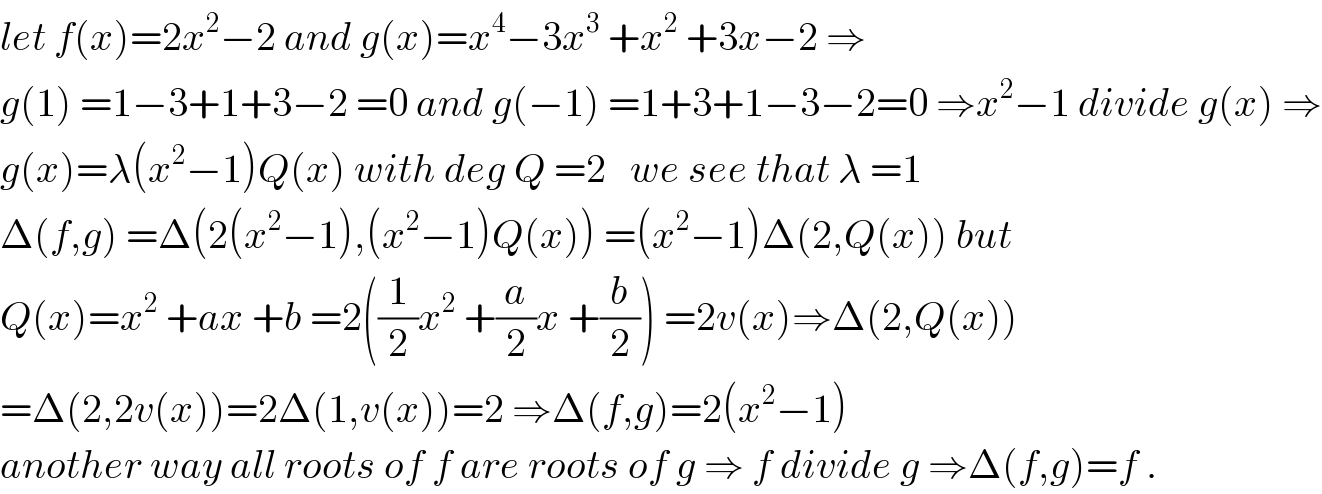
Question and Answers Forum
Question Number 49238 by cesar.marval.larez@gmail.com last updated on 04/Dec/18
![Find the maximum common divisor of the folllwing polynomials: •f(x)=x^4 +5x^3 −4x^2 −2x and g(x)=−3x^4 −x^3 +4x^2 in Q[x]. •f(x)=2x^2 −2 and g(x)=x^4 −3x^3 +x^2 +3x−2 in R[x]](Q49238.png)
Commented by maxmathsup by imad last updated on 04/Dec/18

Commented by cesar.marval.larez@gmail.com last updated on 05/Dec/18

Commented by maxmathsup by imad last updated on 05/Dec/18

